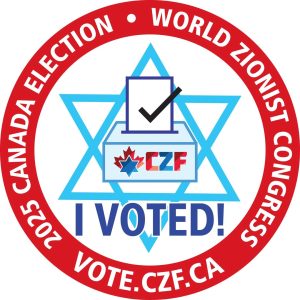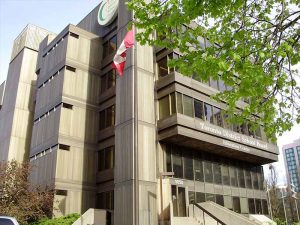 Almost immediately after Pesach, we mark three important dates here in Israel that are delicately intertwined. Yom Hashoah is commemorated exactly a week before Yom Hazikaron, which is observed the day before Yom Ha’atzmaut.
Almost immediately after Pesach, we mark three important dates here in Israel that are delicately intertwined. Yom Hashoah is commemorated exactly a week before Yom Hazikaron, which is observed the day before Yom Ha’atzmaut.
The theme of the three is “from Holocaust to resurrection.” The subtext is that independence would not have been achieved without the calamity of the Holocaust or the sacrifices of our war dead.
With Israel-bashers equating the Israel Defence Forces with the Nazis and anti-Zionist and anti-Semitic fervor increasingly prevalent around the globe, it’s worth dwelling on these three days.
Yom Hashoah and Yom Hazikaron are sombre occasions. On the eve of both, all restaurants, cafes, theatres and like institutions are closed. All music broadcasted is sober. At specific hours on both days, sirens wail throughout the country, traffic stops and everyone stands in silence, remembering the victims and the fallen.
Yom Hashoah commemorations are held in schools and public places, most notably at Yad Vashem and in two kibbutzim – Yad Mordechai, named after the leader of the Warsaw Ghetto uprising, Mordechai Anilevitch, and Lochamei HaGhetta’ot, founded in 1949 by surviving rebels of the Warsaw Ghetto, partisans, concentration camp survivors and other who hid during those terrible years.
During the day, the media airs Holocaust-related movies and documentaries and interviews with survivors.
Yom Hazikaron is similar in its gravity, if not its universality. It, too, is very solemn, with observances at educational institutions and military cemeteries. On radio and TV, we learn of battles, some that went wrong, and of heroics told by comrades-in-arms, parents, widows and children.
When I commanded military units, I took my soldiers to battle sites and particular graveyards on Yom Hazikaron. The most moving and beautiful cemetery I visited is in Kiryat Anavim, a kibbutz in the corridor leading from the coast to Jerusalem. The common graves of dozens of soldiers, some literally just off the boat from the inferno of Europe, all killed on successive days of the War of Independence, tell of the warriors’ bravery and of the enormity of the sacrifice.
For some Israelis, Yom Hazikaron hits much closer to home than Yom Hashoah. Almost everyone knows someone killed or injured in action.
Despite this, I have often felt the order of the two days should be reversed, with Yom Hashoah observed on the day before Yom Ha’atzmaut and Yom Hazikaron a week earlier. That might not jive chronologically, but it would substantively.
Notwithstanding the unthinkable pain of the deaths of loved ones in Israel’s wars and battles, it’s dwarfed by the magnitude of the suffering, both personal and collective, caused by the Holocaust. The latter was Israel’s constitutive event. Without it, the nations of the world would never have voted at the United Nations for the creation of a Jewish state. As such, its commemoration should have been more closely linked to the celebration of Israel’s birth, with the loss of our soldiers, albeit terribly heartbreaking, receiving a less central a role.
Don’t misunderstand. We must also remember each of our fallen soldiers and support their families. Their supreme sacrifice enabled us to realize the dream of statehood and maintain that achievement since 1948.
The order of things won’t be reversed. Holocaust remembrance is given its rightful place in Israel’s being. The IDF, the country’s most integrative and unifying organization, recognizes its importance. Each year, it sends thousands of soldiers to Poland to partake in a project aptly named “Uniformed Witnesses.” This year on Yom Hashoah, 10,000 soldiers and officers visited the homes of Holocaust survivors, giving each flowers and a certificate.
Grotesque comparisons between Nazi evils and IDF actions abound. Those who brand us demons desire Israel’s eradication. The ongoing debate about the distinction between anti-Semitism and anti-Zionism becomes moot. Jews are blamed for Israel’s actions. And what would they be blamed for if there were no Israel? For being Jews?
A strong, independent Israel, with men and women willing to die to ensure it stays that way, is not always right, nor always pretty. But it occupies the moral high ground. It’s accountable for its acts and omissions and always soul-searching. This is a lesson of the Holocaust, and this is what Yom Hashoah, Yom Hazikaron and Yom Ha’atzmaut are all about.






